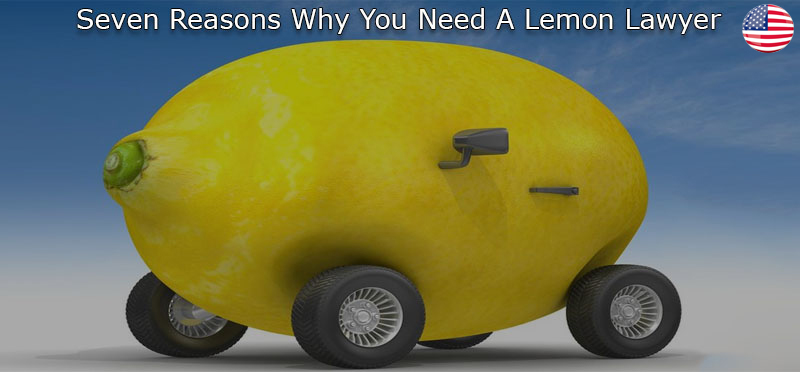
A lemon car is a car you have bought recently but does not work correctly.
It might be consuming more oil, a botched framework you did not realize while buying, a paint that is not good, or some horrible smell.
Now, you have paid the entire money, and this experience is not what you expected.
You have been to the dealer several times, but all in vain. You have also tried to get it repaired, but it does not seem to work.
Question: What to do with a Lemon car?
Situation: I bought a lemon and can’t get to work. The dealership refuses to make this right.
Solution: There is a high probability that your car falls under the criteria of the lemon car law. With the lemon car law, you will be able to find a solution to your problem.
So, for the vehicle to be considered a lemon, it must have a:-
- Substantial defect- For the defect to be substantial, it should fall into the category of a warranty, which has occurred in a particular time slot post-purchase. In case the car has had a substantial defect, four repair attempts are given to the dealer or the manufacturer to solve the problem. A car can be considered a lemon if it is in the repair shop for a substantial defect for more than certain days.
- Persistence of having the defect even after you have made attempts to repair it.
Then, there is the Federal Consumer Protection act which comes in handy for such issues.
The Magnuson-Moss Warranty Act is the law that protects the buyer for a product whose price is more than $25 and is accompanied by a written warranty.
It aids the buyers to cease the manufacturers from fabricating illegal warranties.
At the same time, it makes it easier for the consumer to recover the attorney fees for filing the lawsuit.
So, if the lemon car you have purchased falls under the category of unfair warranty, you can contact the attorney.
You need to send a notice to the manufacturer about the defect. The arbitration procedure must be applied if the settlement is not up to your satisfaction.
The arbitration process: –
The manufacturer will select a state consumer protection agency program per state law.
The decision of arbitration is appealable in the court by the consumer.
Hence, if you are not satisfied with the court’s decision, you can always sue the manufacturer for the same. In addition, you can most definitely appeal the arbitration ruling.
Note: – For consumers who have substantial documentation with them for the claims pursue better than those who do not have any evidence.
Hence, make sure to keep a record and carry receipts, service records, phone records, and ads or brochures.



